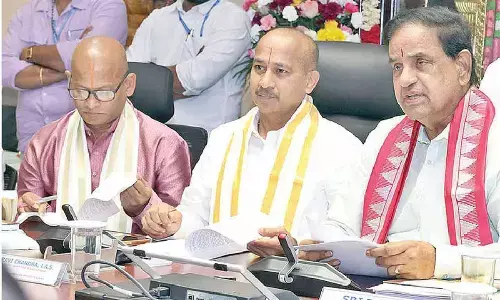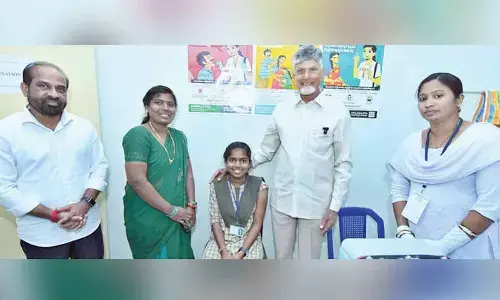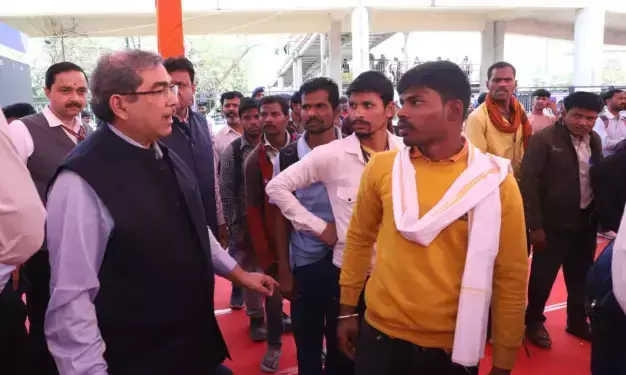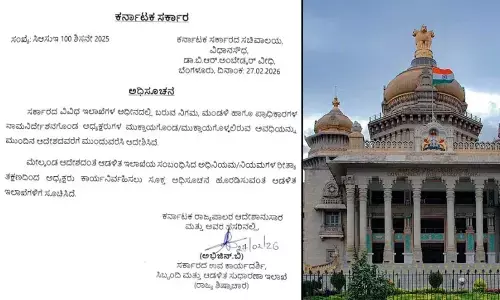Making CRV people-friendly is key to its success
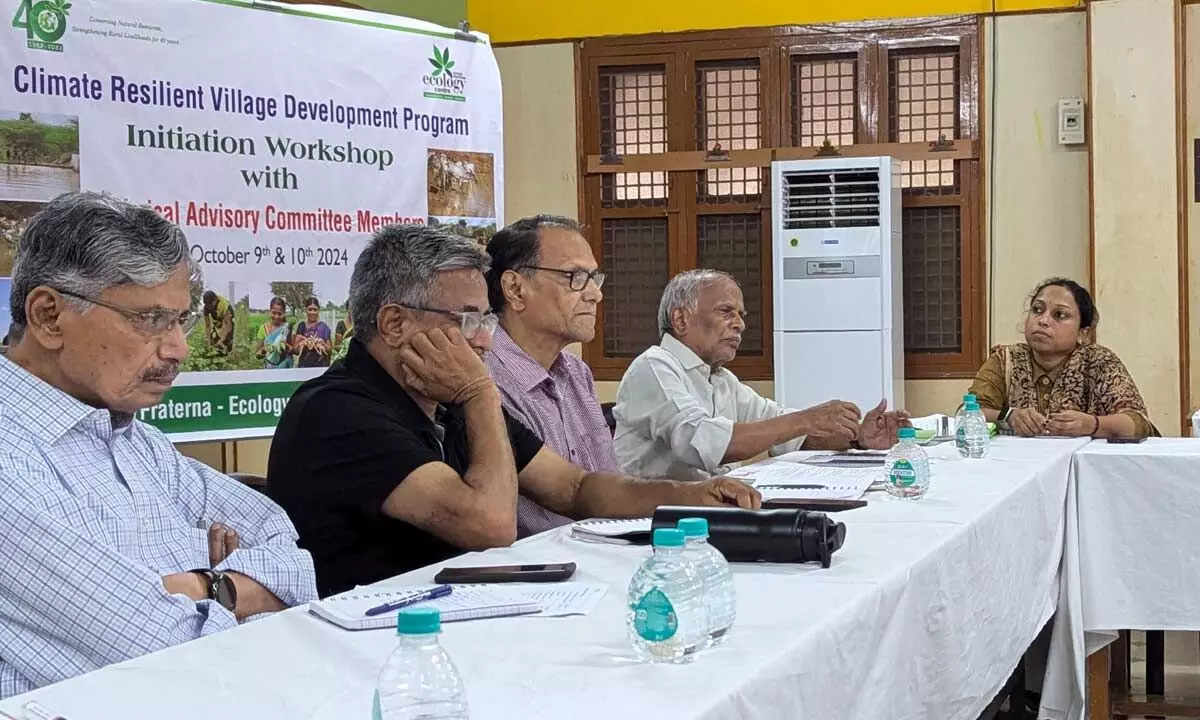
Resource persons at the concluding session of the 2-day workshop on ‘climate resilient villages development’ in Anantapur on Friday
The success of creating climate-resilient villages (CRV) depends mainly on the adaptability of the technologies or interventions by the native population leveraging available local knowledge, opined agriculture scientists and NGO practitioners at the conclusion of a two-day workshop here on Friday.
Anantapur: The success of creating climate-resilient villages (CRV) depends mainly on the adaptability of the technologies or interventions by the native population leveraging available local knowledge, opined agriculture scientists and NGO practitioners at the conclusion of a two-day workshop here on Friday.
Principal Investigator in National Innovations in Climate Resilient Agriculture (NICA) M Prabhakar detailed the experience of ICAR-sponsored initiative in various topographies in the country and how currently they were able to leverage available satellite weather information to predict even at an agriculture block level in a district.
“We now have 100-year projection for Anantapur district and do not see any decline in the total quantum of precipitation, but the number of rainy days are likely to come down drastically,” Prabhakar said while cautioning that crop planning should be done for facing high-intensity rains concentrated in a small geographical area. The rainfall has increased by 10 to 12 per cent in Anantapur, he said, showing rainfall data analysis for more than five decades.
He explained about several digital tools that were available on ICAR website for ground level practitioners of agriculture and NGO/government agencies providing them support.
Wassan Executive Secretary Adusumilli Ravindra and Associate Director Pavan detailed their interventions in improving the climate resilience for enhancing income levels from livelihoods practices by the native people. They explained about the participatory analysis of land use, changes, production systems and climate risks. While emphasising the urgent need for taking up such climate resilient village development programme in Anantapur, Principal Scientist and Head of Agriculture Research Station, Rekulakunta, M Vijaysankar Babu offered to collaborate with Accion Fraterna Ecology Centre in implementing the project by entering into an MoU through Acharya NG Ranga University.
Nudge Re-Farm Head Gitanjali Rajamani showed interest in the programme and emphasised on keeping solutions simple and clean, while SayTrees Foundation representative Mahidhar wished to look into the economic benefits of the implementation of the programme/or desired change in the village.
State in-charge of FES Bhaktar Vali explained their interventions that bore fruits in Madanapalli and Chittoor areas. All the scientists were, however, of the opinion that internal and external evaluation had to be got done periodically to understand the efficacy and course corrections.
All the participants unanimously agreeds that such a programme had to be participatory with beneficiary villagers/farmers contributing both financially and managing the systems/institutions even after the implementing NGOs quits the village at the end of the programme.


